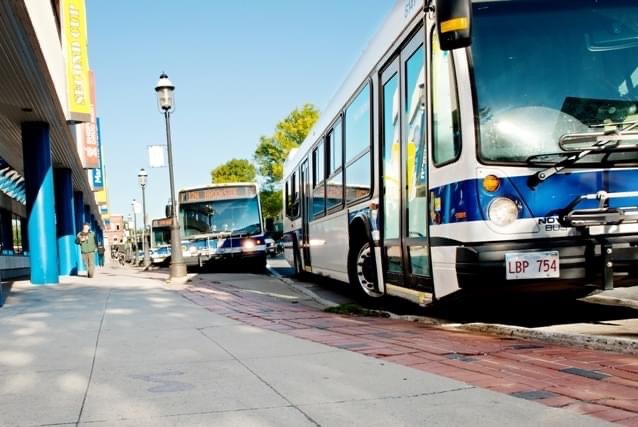In October 2022, the City of Fredericton announced its plan for the bus fleet’s transition from exclusively fuel-based to hybrid models. Hybrid buses rely on both diesel and electricity. According to the CBC, they have been shown to emit “between 35 and 40 percent fewer greenhouse gasses” than regular buses.
Scott Brown, who serves as the manager of Fredericton’s building and fleet services, was in charge of communicating these plans to the press. He told the CBC that the fleet’s transition to hybrid is “low risk and financially prudent,” for it will not require “upfront facility modifications.”
Fredericton is not the first city in Canada (or even New Brunswick) to adopt a hybrid fleet. In Saint John, the first hybrid buses took to the streets in July, and the City of Saint John also leased six fully electric, smaller buses.
While Fredericton’s fleet’s transition to fully-electric buses is on the horizon, it is relatively distant. Hybrid buses are meant to be utilized for around eighteen years, which accounts for their end of life. Brown emphasized to the CBC: “This will be a slower transition, but we know we have to start moving toward those targets.”
Among the targets, of course, is Fredericton’s goal to reduce its carbon emissions to zero by 2050. Although the transition to a hybrid fleet may seem like a step in the right direction, this process is complicated by budget restraints.
There is still no certain date for the acquisition of Fredericton’s first hybrid bus. Brown told the CBC that, depending on the circumstances, the process may start between 2023 and 2024.
The Brunswickan spoke about the hybridization of Fredericton’s fleet with Dr. Trevor Hanson, an Engineering professor at the University of New Brunswick.
Hanson, who is also the coordinator of the UNB Transportation Group, specializes in transportation and sits on a “number of committees relating to transportation, rural planning, and local governance.”
“I can’t speak to the long-term lifecycle costs of hybrid buses, but they’re going to be using fewer fossil fuels,” said Hanson, “and fewer emissions should mean less pollution.”
In thinking about other changes that could be made to the system, he emphasized the obstacles to transit that exist in Fredericton.
“Well, there’s a couple of big questions that we talked about, you know, how to improve transit,” said Hanson.
“There is how the system is operating now, given the constraints that Fredericton transit is working with.”
Hanson continued, noting that New Brunswick dedicates no provincial funding to its transit system: “[New Brunswick] is one of the few provinces of Canada that does not put provincial funding into transit.”
“It means they have to work with the budget that they have, which is primarily from property taxes at the city, so it is really tricky,” he notes, “you only get so much that from the fares and then the rest comes from the city tax base.”
While the current budget may be enough to “keep the system going,” Hanson mentioned that “to make any big changes, there is going to be some kind of bigger investment.”
“The challenge is, where does it come from?”




